Continuing our Celtic Managers Ranked! list. Having unnecessarily traumatised you all in part one, we now offer you those middle-ranked contenders from number 10 to number six …
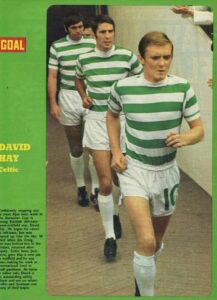
- David Hay (1983-1987)
Davie Hay arrived in the summer of 1983 as the seemingly safe option to replace departing club legend Billy McNeill. Hay became the sixth ex-player to perform the role and the club’s sixth manager overall. He had a solid CV as a player and his only managerial outing to that point involved a promotion-winning season at Motherwell. But unfortunately his reign at Celtic also coincided with one of Scottish football’s more competitive eras, and Hay was up against two of the very best in Alex Ferguson at Aberdeen, and Jim McLean at Dundee United. And later on, in what proved to be his final season, the re-emergence of Rangers from a near decade-long slumber. All of that meant Hay’s Celtic won just two trophies across four seasons – a Scottish Cup win in 1985, followed by a memorable and hugely dramatic last gasp title win in 1986. Slim pickings for a team with talents like McGrain, Aitken, McStay, Burns, Provan, and McClair at its core. There were perhaps a few mitigating circumstances for Hay; most significantly, years of poor off-pitch management was taking its toll on the club’s finances and its ongoing ability to compete. The European glory years were already a distant memory, and with things about to get a whole lot worse, Hay was sacked in the summer of 1987 (after refusing to resign?). Hay would become assistant general manager – whatever the hell that means – and chief scout for brief periods later on.
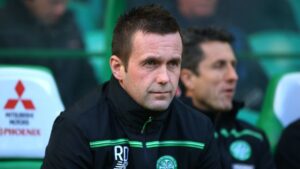
- Ronny Deila (2014-2016)
Even as the most unlikely appointment of all, ranking the humble Norwegian Ronny Deila a lowly ninth on a list of just 15 names is going to seem quite harsh to anyone reading this. More so, given his team won both league titles available, playing some pretty decent football along the way. But that, of course, is just half the story. Deila never had to compete with Rangers, and when he did, his head-to-head in cup ties reads 1-1 (albeit the defeat came on penalties). Of the four domestic cups available across his two seasons in charge, the 2015 League Cup was the solitary success … with painful exits endured against the likes of Ross County and Inverness Caley Thistle. His European record was, at best, “mixed”; twice eliminated at the Champions League qualifying stage against clubs Celtic should have been beating comfortably (Maribor, Malmo). His first year in the Europa League was promising enough, with progress to the knock-out phase, before being beaten 4-3 on aggregate by Inter Milan. Yet his second season at that level saw Celtic winless in six group fixtures against relatively moderate opposition. His transfer forays were equally mixed; signing a lot of players we never really saw very much of, but with a handful of success stories along the way. A free Craig Gordon, bargain-priced Ryan Christie and Stuart Armstrong, plus a couple of successful Manchester City loan signings (Denayer, Roberts) perhaps proving to be his best deals. On a rolling annual contract, Deila departed of his own accord in 2016, paving the way for the first coming of Brendan Rodgers.
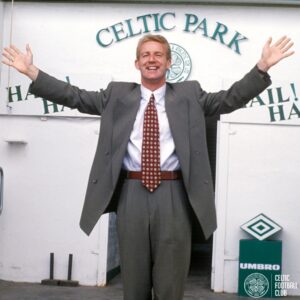
- Tommy Burns (1994-1997)
When assessing Tommy Burns and his place amongst the managerial greats and not-so-greats, the first thing to consider has to be his starting point; a club in root-and-branch transition following the arrival of Fergus McCann in March 1994. Lou Macari was sacked that summer, and after a successful stint at Kilmarnock, Burns was welcomed home like the long lost son he very much was. As much as we wished it, the complete rebirth of the football club was never going to be instant, on limited finances, with McCann’s first priority being to sort out the infrastructure mess he’d inherited. A debut season of playing home fixtures at Hampden didn’t help, and the 1994/95 league campaign was pock-marked by 18 draws in 36 fixtures, and a distant 4th place finish. Putting aside the shock League Cup final defeat against Raith Rovers, Burns’ Celtic were rewarded with a season-ending highlight, a Scottish Cup final win over Airdrie to secure the club’s first trophy in six long years. Much improved league form in 1995/96 saw Celtic defeated just once, but sadly that defeat came against Rangers and it proved a critical six-pointer, with the league eventually lost by just four points. Nonetheless, as runners-up, Celtic achieved its highest league position in eight years. Something it would replicate the following season, albeit somewhat more stylishly, and the 1996/97 season was especially memorable for the highly attractive football on offer, with the likes of Di Canio and Cadete in full flow. Celtic had two brief European excursions under Burns; being outclassed by PSG in 1995, and by Hamburg in 1996. But he can’t be judged on Europe; playing entertaining football, bringing silverware back, and twice pushing the strongest Rangers team in a generation (oh yes it was) all the way in the league during a period of massive upheaval at the club should not be underestimated. Burns is another ex-manager who returned to the club in a coaching or support capacity in later years, and the fact that he clearly relished those lesser roles says all you need to know about the man and his love for the club. R.I.P. Tommy (died 2008).

- Neil Lennon (2010-2014, 2019-2021)
Where to start with Neil Lennon? He’s become a fairly divisive figure, for sure. Two spells as manager. Huge domestic successes and one almighty domestic failure. And despite memorable wins over the likes of Barcelona, Benfica, and Ajax, during his first tenure in particular, there’s a sense that his Celtic teams mostly underachieved in Europe across the two spells overall. Yet he still remains one of the most highly-decorated of all Celtic men – as a player, as a captain, and you heard it here first: as a manager. The record books don’t lie, even if we just concern ourselves with his managerial record for the purposes of this list: five titles and five cups, including two Trebles, over the course of six and a half seasons in charge (in total). Unfortunately for Lennon, that trophy haul will be completely lost amid future pub discussions about his worth as a manager because he was, of course, the man in charge when we meekly threw away the prospect of winning ten-in-a-row. That will be his most memorable or immediately-at-hand legacy, with the very same punters conveniently forgetting those other successes, and the fact that it takes an entire football club – players included – to achieve such unprecedented failure. Actually, not that unprecedented, even big Jock experienced it, and someone maybe ask Walter Smith how it felt? But as scapegoats go, and our need to always find one, Neil Lennon will have to do for now. When the pain of that failure subsides, perhaps then and only then will we be able to view Lennon’s time at the club a little more objectively. For now he’ll sit as a middle-ranker (no typo), but it’s also probably worth remembering that Neil Lennon twice stepped up when a club in need reached out, inheriting a sizeable post-Mowbray task the first time around, and at the second time of asking, finishing off (and more, but not quite, damn it!) what Rodgers – and Lennon himself, remember – had started.
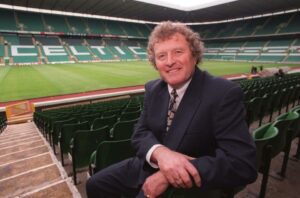
- Wim Jansen (1997-1998)
The Perm. Wim the Tim. He came, he saw, he conquered, and then departed. All in the blink of an eye and under a cloud of perceived backroom interference thanks to the irksome presence of one Jock Brown in a still-not-very-clear General Manager’s role. WTF was that all about? Jock Brown, a football commentator, was somehow meant to credibly offer advice to man who had played in two World Cup Finals and won a European Cup (at Celtic’s expense) as a player? Let’s generously put that down to Fergus McCann still feeling his way as club supremo, devoid for the first time of Tommy Burns’ guidance and wider understanding of “how things actually work at Celtic”. Regardless, Jansen was an enormous success during his solitary year in charge, winning the League Cup before destroying Rangers’ own ten-in-a-row party plans with a widely celebrated league title triumph a few months later. Two trophies in one season, including the most important one, which matched the entire trophy haul of the previous decade (since the league was last won in 1988). As if that wasn’t enough to propel him above a few of the more longer-serving managers on this list, he’s also the man who signed Henrik Larsson for what turned out to be miserly bargain-basement price of just £650,000 … a masterstroke which Celtic fans celebrated almost every single day for the best part of the next decade. The notion that Jansen left only because of frustration at Brown’s ongoing disruptive influence at the club tends to ring true, although who really knows? R.I.P. Wim (died 2022).
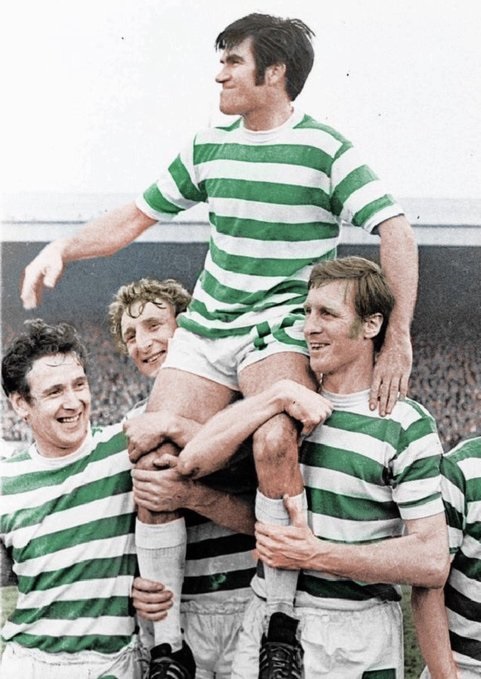
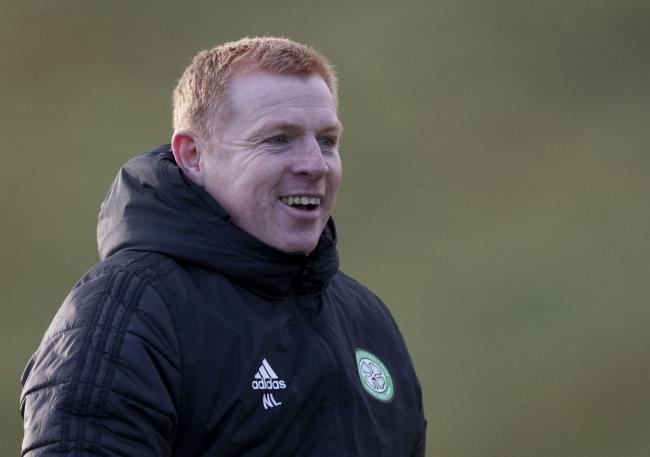
A bit unfair on Tommy Burns, who had to put up with the huns (and their MIBs) in their cheating prime. IMO, depriving an imploding thems of their 10 was a good achievement but Wim seems a bit high on this list.
Very unfair on Neil Lennon. The 10 IAR debacle was blamed on him. Off field issues especially Covid debacle and the signing policy and some player issues were as much to blame and lay more at ithers feet. 3 titles albeit with no real opposition is still an outstanding achievement but picking up from Rodgers departure and delivery of the 9 was also very good. Need to climb away from the petty knee jerk.Tommy Burns was a victim of the Board although in turn they were focused on rebuilding the stadium.
So you’re going to put Gordon Strachan in the Top5? Cesar, Ange, Brendan and Martin in whatever order, but I think someone in your 6-10 should be in the 5 spot. Artmedia anyone?
Tommy the legend or Wim for stopping 10, maybe even the trophy haul of NFL ahead of WGS.
Ronnie Deila was cheated out of a treble, and did not receive expected support from the club hierarchy to deal with dinosaur players (including Broony at the time) who mocked his attempts to modernise the diet and fitness regime, which were long overdue. A little harsh on him I feel
Agreed, Ronnie laid a lot of the groundwork in terms of updating the outlook and behind-the-scenes at the club that was just starting to come together at the end of his time, Brendan got to reap the benefit of all that
Exactly, to call the “defeats” to Inverness and RC painful without any explanation of the pitiful cheating that accompanied that pain is negligent by whoever wrote this article, but of course you’re not allowed to like Ronnie. Probably because the groin brigade told us not to.
when talking about celtics worst managers Mowbray is and hopefully always will be the benchmark. Stein was by far and away the best with McNeil Strachan and O’Neil silver medalists. Hay and Lennon get bronze along with Jansen.
As for the here and now I don’t really know where Rodgers fits in hes been pretty pish in Europe, did his thing when the hunz were still amateur’s and the majority of his signings were minging. For me, the next three seasons will define his tenure
If we’re crediting Lennon with 5 titles then, in fairness, we need to also acknowledge that he was in charge when we lost 3 titles (forbye we’d be on 14 in a row).
His cup record the first time round was also horrendous, leading to the Hampden Hoodoo jibes that persisted long after Rodgers and Postecoglu put it to bed.
For me, it was always a case of, if that’s what a failed Bolton, Hibs and Omonia manager can achieve with all our advantages, then just imagine what a decent manager could do.
Enter Rodgers and Postecoglu.
Lennon should never have managed Celtic once, never mind twice. And he should keep his nose out now, I don’t need to hear his opinion in an attempt to keep him in the news.
Billy McNeill and David Hay ought to have been legendary Celtic managers. Both were thwarted by a Board which seemed to take malicious pleasure in putting their employees in their place. That Board’s ambition stretched no further than achieving a top four position in the SFL.
A couple of instances which support this theory: Charlie Nicholas was pushed out the door far too soon to secure a large fee from Arsenal; the Joe McLaughlin transfer was a done deal until an eleventh hour Board veto; when Billy won the double in the centenary year the Board rewarded him with a transfer war chest sufficient to lure Mikey Galloway.
I could go on but Ithink I might cry
Charlie Nicholas was pushed out the door
hahahahahahahaha, that’s the funniest thing I’ve ever heard. Uncle Tom couldn’t wait to leave. Nicholas could have gone to Liverpool a proper football team but decided to take his piss head mate to London.
Indeed, Charlie was pushed out the door by feck